
Conflicten, co-existentie, autoritarisme, revoluties: het Midden-Oosten is een bijzonder dynamische en fascinerende regio die actueler en relevanter is dan ooit, maar die in de media vaak als stereotype wordt neergezet. Met een fascinerende geschiedenis en een cultuur die nog altijd een enorme invloed heeft op 'het Westen', kan de regio beslist als wereldspeler worden gezien.
Ben je geïnteresseerd in de conflicten in Syrië, Jemen, Israël en Palestina, Irak en Iran? Wil je de rol van religie in de Libanese, Israëlische en Egyptische politiek beter begrijpen? Vraag je je af hoe Europa en het Midden-Oosten met elkaar verbonden zijn, en hoe moslims, christenen, joden en andere religieuze groepen zich tot elkaar verhouden? Of wil je meer weten over de culturele achtergronden van vluchtelingen uit deze regio? Wil je de levendige traditie van cartoons in het Midden-Oosten verkennen of het culturele erfgoedbeleid ontdekken in een regio die bekend staat als de wieg van de beschaving?
Dan is Midden-Oostenstudies echt iets voor jou.
In de opleiding Midden-Oostenstudies van de RUG krijg je inzicht
in de vele facetten en achtergronden van deze regio. De opleiding
biedt een breed en divers programma met nadruk op actuele
ontwikkelingen in het Midden-Oosten en Noord-Afrika. Je bestudeert
vier kernthema's: geschiedenis, politiek, cultuur en religie.
Bij geschiedenis ligt de focus met name op ontwikkelingen
in de 19e tot 21e eeuw in landen als Egypte, Saoedi-Arabië,
Israël, Palestina, Libanon, Turkije en Irak. De vakken over
politiek bieden inzicht in thema’s als kolonialisme,
staatsvorming, dictatuur, autoritarisme, sektarisme en conflict.
Ook bestudeer je de culturen in het Midden-Oosten, onder
meer aan de hand van literatuur, architectuur en kunst. De
achtergrond en de rol van religies in het hedendaagse
Midden-Oosten helpen je de diversiteit van islamitische, joodse en
christelijke gemeenschappen in een vergelijkend perspectief te
begrijpen. De hedendaagse thema’s die je bestudeert, geven je
inzicht in actuele ontwikkelingen die ook voor Europa van groot
belang zijn.
Naast de vier kernthema’s leer je bij Midden-Oostenstudies
een van de moderne talen uit de regio: Modern Arabisch. De
taalopleiding in Groningen mondt uit in het buitenlandverblijf: in
het tweede jaar verblijf je een semester in het Midden-Oosten.
Studenten gaan naar het Nederlands-Vlaams instituut in Caïro,
Egypte of naar het Nederlands instituut in Rabat, Marokko. De
opleiding faciliteert je verblijf en hieraan zijn geen extra
studiekosten verbonden.
Zo krijg je unieke kennis van het Midden-Oosten, word je een
kritisch denker met brede kennis van de regio, en leer je allerlei
vaardigheden aan die je zowel in je toekomstige loopbaan als in je
persoonlijke ontwikkeling goed van pas zullen komen.
Lees hier meer over de afdeling Midden-Oosten Studies.
In het eerste jaar maak je kennis met de vier thematische speerpunten van de opleiding: geschiedenis, politiek, cultuur en religie. Zo bestudeer je de moderne geschiedenis van de regio, maak je kennis met jodendom en islam, bespreek je actuele politieke ontwikkelingen bij het vak Landen en Samenlevingen en leer je culturen van het Midden-Oosten kennen aan de hand van belangrijke steden als Jeruzalem en Istanboel. Ook begin je met het leren Modern Arabisch.
| Semesters | ||||
|---|---|---|---|---|
| VakkenVakkencatalogus > | 1a | 1b | 2a | 2b |
| Geschiedenis van het moderne Midden-Oosten (5 EC) Inleidend overzicht van de moderne geschiedenis van de regio. | ||||
| Joden en Jodendom in het Moderne Midden-Oosten (5 EC) Inleiding in de geschiedenis, geschriften, geloofsopvattingen en rituelen van het jodendom. | ||||
| Taalvaardigheid Arabisch 1 en 2 (10 EC) Eerste kennismaking met het Arabische schrift en de ontwikkeling van basisvaardigheden in het lezen, schrijven, luisteren en spreken in het Modern Standaard Arabisch. | ||||
| Academische vaardigheden Midden-Oostenstudies 1 (5 EC) Het aanleren van academische vaardigheden en het opzetten en schrijven van een academisch onderzoek. | ||||
| Islam en Moslims in het Moderne Midden-Oosten (5 EC) Inleiding in de geschiedenis, geschriften, geloofsopvattingen en rituelen van de islam | ||||
| Politiek en Internationale Betrekkingen in het Midden-Oosten (5 EC) Bestudering van Midden-Oosten steden: actualiteit en achtergronden van Jeruzalem en Cairo. | ||||
| Faculty wide course on Cultural Heritage or Global Changes 1 (10 EC) | ||||
| Taalvaardigheid Arabisch 3 en 4 (10 EC) Taalvaardigheid: als voorbereiding op het buitenlandprogramma in Cairo of Rabat. | ||||
| Academische vaardigheden Midden-Oostenstudies 2 (5 EC) Het aanleren en uitvoeren van verschillende onderzoeksmethodes die belangrijk zijn in het vakgebied | ||||
In het tweede jaar worden de verschillende thema's uitgediept en op elkaar betrokken. Zo leer je bij Islam en Moderniteit alles over de relatie tussen religie en politiek in het Midden-Oosten en leer je films uit de regio te analyseren om inzicht te krijgen in de recente geschiedenis en de culturen in de regio. Daarnaast vervolg je je taalstudie en verblijf je in het tweede semester een half jaar in het Midden-Oosten: in Egypte of Marokko.
| Semesters | ||||
|---|---|---|---|---|
| VakkenVakkencatalogus > | 1a | 1b | 2a | 2b |
| Joden en Moslims in het Moderne Midden-Oosten (5 EC) De relatie tussen jodendom en islam in de moderne tijd. | ||||
| Cultuur en Soft Power in het Midden-Oosten (10 EC) Bestudering van het Midden-Oosten op basis van films. | ||||
| Taalvaardigheid Arabisch 5 en 6 (10 EC) Taalvaardigheid: als voorbereiding op het buitenlandprogramma in Cairo of Rabat. | ||||
| Islam, Politiek en Moderniteit in het Midden-Oosten (5 EC) Ontwikkelingen in de islam in de moderne tijd. | ||||
| Buitenlandprogramma (30 EC) Semester in Cairo of Rabat. | ||||
In het eerste semester van het derde jaar volg je een Minor. In het tweede semester volg je verdiepende colleges over geweld en conflictbeheersing in het Midden-Oosten en over het thema literatuur en identiteit. Je sluit je Bachelor af met een scriptie.
| Semesters | ||||
|---|---|---|---|---|
| VakkenVakkencatalogus > | 1a | 1b | 2a | 2b |
| Facultaire minor (30 EC) | ||||
| Conflict en Co-existentie in het Moderne Midden-Oosten (5 EC) Aspecten van geweldtoepassing en conflictbeheersing in de moderne tijd. | ||||
| Bachelorscriptie (10 EC) Zelfstandig opzetten en uitvoeren van een wetenschappelijk verantwoord literatuur- en bronnenonderzoek over een duidelijk afgebakende vraag, met kritische analyse en reflectie. | ||||
| Faculty wide course on Cultural Heritage or Global Changes 2 (10 EC) | ||||
| Europa in het Midden-Oosten, het Midden-Oosten in Europa (5 EC) Europa en het Midden-Oosten: Erfgoed en Wisselwerking. De wederzijdse invloeden tussen Europa en het Midden-Oosten analyseren via politiek, cultuur en religie vanaf eind 19e eeuw tot eind 20e eeuw. | ||||
Let op: hierboven staat het programma van het huidige collegejaar (2025-2026). Per 2026-2027 wijzigt het vakkenaanbod van deze opleiding. In het najaar van 2025 wordt hierover meer bekend.
| Programma-opties |
|---|
| Minoren (minor) Het vijfde semester besteed je aan je minor: een pakket samenhangende vakken dat toekomstgericht is. Het bereidt je voor op een vervolg in een mastertrack of op de arbeidsmarkt. Kies uit een careerminor, buitenlandminor, universitaire minor of facultaire minor. |
| University of Groningen Honours College (honoursprogramma) Het Honours College biedt talentvolle en gemotiveerde studenten de kans meer uit zichzelf te halen. Dat doe je door het volgen van een extra (honours)programma van 30 studiepunten naast je reguliere bacheloropleiding van 180 studiepunten, en door tal van andere activiteiten die je samen met honoursstudenten van andere opleidingen onderneemt en organiseert. Ontwikkeling van talent en eigen initiatief zijn de uitgangspunten van het honoursprogramma van de RUG. |
Studenten wordt aangeraden een buitenlandprogramma te volgen. In uitzonderlijke gevallen kan hiervan worden afgeweken.
Met het VWO examen Engels voldoe je aan de taaleis.
Met het VWO examen Engels voldoe je aan de taaleis.
Met het VWO examen Engels voldoe je aan de taaleis.
Met het VWO examen Engels voldoe je aan de taaleis.
Taaleis Engels: minimum TOEFL eis iBT 90 (met een minimum van 21 voor alle onderdelen), of IELTS 6.5 (met een minimum van 6 voor alle onderdelen) or Cambridge C1 Advanced of C2 Proficiency met een minimum score van 180. Klik op de link voor meer informatie: https://www.rug.nl/let/studeren-bij-ons/bachelor/aanmelding-en-inschrijving/language-requirements-ba
De opleiding verzorgt matching. Deelname is optioneel. Het advies is niet bindend.
De Faculteit der Letteren gaat er van uit dat jij, via een bezoek aan de Open dagen, deelname aan een Eén Dag student en/of aan een Webklas, jezelf goed hebt voorbereid op de opleiding van jouw keuze. Op basis van deze voorlichtingsactiviteiten bepaal jijzelf of je goed matcht met de opleiding.
Vragen over matching bij de Faculteit der Letteren? Hier kun je verdere informatie vinden: www.rug.nl/matching
| Type student | Deadline | Start opleiding |
|---|---|---|
| Nederlandse studenten | 01 mei 2026 | 01 september 2026 |
| EU/EEA studenten | 01 mei 2026 | 01 september 2026 |
| non-EU/EEA studenten | 01 mei 2026 | 01 september 2026 |
The Faculty of Arts believes students can decide for themselves whether they match with their chosen program based on the available bachelor program information, by visiting the Open Days, and by participating in a Webclass and/ or Student for a Day. If you are unable to attend one of these activities, a final opportunity for matching is to contact one of the students of the program in June.
If you have any further questions about matching, check out: www.rug.nl/matching
| Specifieke eisen | Extra informatie |
|---|---|
| vooropleiding |
A Dutch VWO diploma, a German Abitur, an International Baccalaureate diploma, a European Baccalaureate or another diploma that is sufficient for acceptance to a Dutch university. For other VWO-equivalent qualifications, see: https://www.rug.nl/education/application-enrolment-tuition-fees/admission/procedures/application-informatie/with-non-dutch-diploma/entry-requirements/bachelor-entry-requirements/vwo-equivalent-qualifications. Students with a Dutch 'hbo propedeuse' diploma also need to meet the language requirements mentioned below. |
| taaltoets cijfer |
International students will have to satisfy an additional Dutch language requirement, which can be met by passing the State Examination in Dutch as a Second Language (NT2, programme II). This examination guarantees Dutch proficiency at CEFR level B2. However, Dutch proficiency at CEFR level C1 or higher is recommended. |
| Type student | Deadline | Start opleiding |
|---|---|---|
| Nederlandse studenten | 01 mei 2026 | 01 september 2026 |
| EU/EEA studenten | 01 mei 2026 | 01 september 2026 |
| non-EU/EEA studenten | 01 mei 2026 | 01 september 2026 |
Als je je universitaire opleiding voort wilt zetten door een master te volgen, zoals de meeste studenten doen, zijn er allerlei verschillende vervolgopleidingen waar je uit kunt kiezen. Na het afronden van de BA Midden-Oostenstudies kun je doorstromen naar:
In combinatie met bepaalde minoren zijn er nog meer mastertracks direct toegankelijk, zoals Journalistiek.
De kennis, inzichten en vaardigheden die je opdoet in de driejarige Bachelor bereiden je goed voor op de arbeidsmarkt. Je wordt opgeleid tot een veelzijdige Midden-Oostenexpert. Hieraan is in deze tijd veel behoefte bijvoorbeeld in relatie tot buitenlandpolitiek, vluchtelingenopvang en terrorisme en veiligheid.
Onze oud-studenten werken zowel in het Midden-Oosten en Europa.
Relatief veel afgestudeerden vinden een baan in de politiek en
diplomatie, bijvoorbeeld bij het Ministerie van Buitenlandse Zaken
of op een ambassade. Ook werken oud-studenten regelmatig bij
instanties die zich bezighouden met vluchtelingenopvang,
integratie, veiligheid en contra-terrorisme. Maar ook kan je denken
aan journalistiek, musea, het bedrijfsleven of de wetenschap: de
brede achtergrond die je opdoet bij Midden-Oostenstudies geeft je
veel opties voor vervolgstudie en loopbaan.
(Ministerie van Defensie, Ministerie van Buitenlandse Zaken)
(TV, radio, kranten)
(Ambassades in Nederland en het Midden-Oosten)
(vluchtelingenwerk, integratie, radicalisme, NGO's in de regio)
(SHELL, AKZO-NOBEL)
(onderzoeker, PhD)
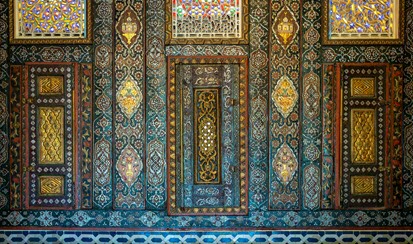
De stafleden gelden allemaal als experts op hun vakgebied. Ze doen onderzoek dat goed aansluit bij het profiel van de opleiding, bijvoorbeeld op het gebied van jihadisme, politieke islam, cultureel erfgoed, minderheden, journalistiek en Arabische literatuur. Het onderwijs dat je krijgt is dus gedeeltelijk direct gebaseerd op het lopende onderzoek aan de Letterenfaculteit.
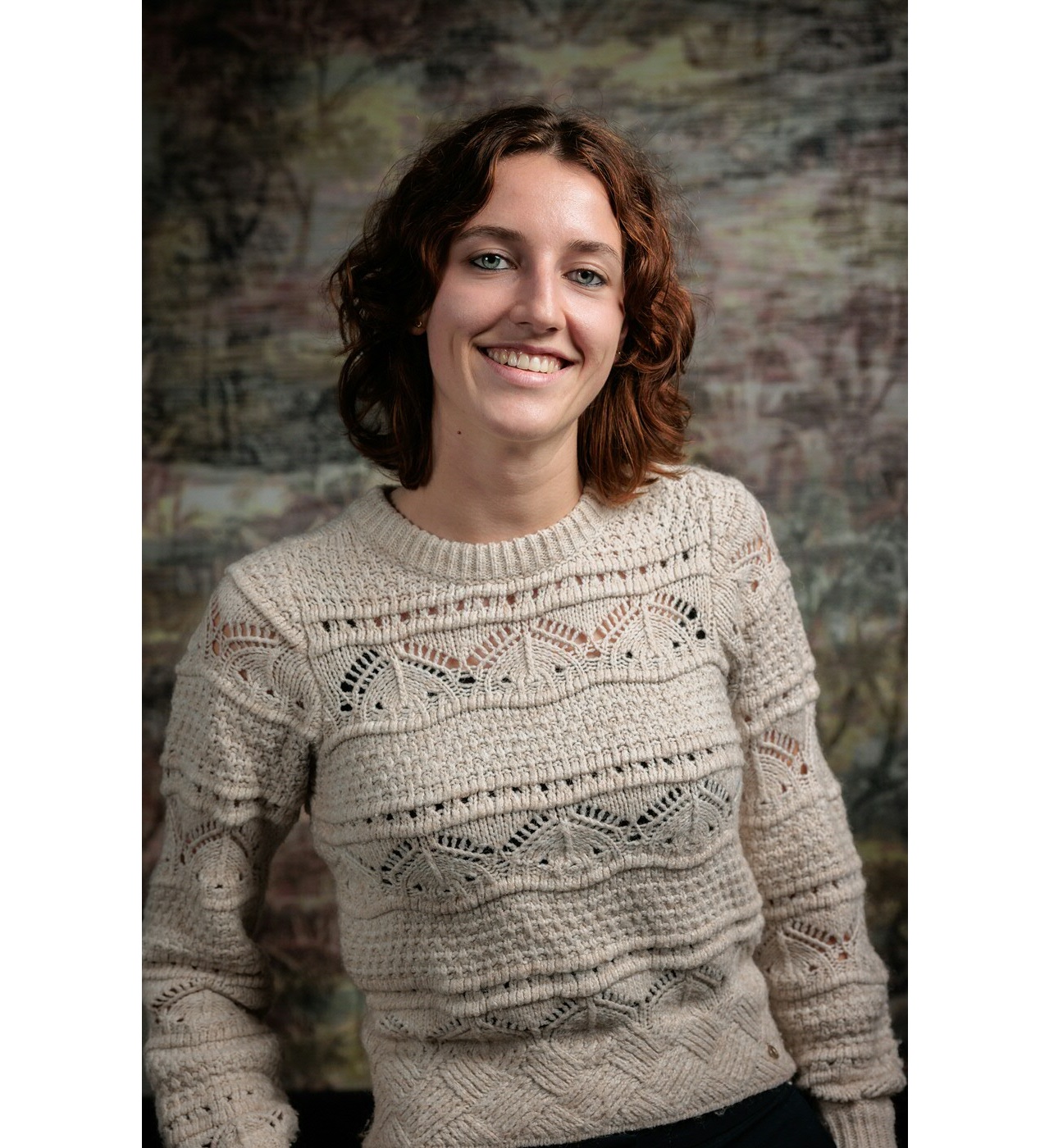
Hey! Mijn naam is Alana Swinkels, ik ben 22 jaar en momenteel een tweedejaars student Midden-Oostenstudies. Oorspronkelijk kom ik uit het zuiden van Nederland, maar ik ben voor mijn studie naar Groningen verhuisd. Buiten mijn studie ben ik ook actief in een commissie, sport ik graag bij de ACLO en werk ik bij Studium Generale. Bij mooi weer zul je me ook vaak tegenkomen in het Noorderplantsoen of op een terras!
Ik had eerst de studie International Relations gekozen. Na dit een jaar te hebben gestudeerd, ontdekte ik dat ik cultuur, geschiedenis en religie erg interessant vind en dat ik politieke theorie minder leuk vind. Daarom besloot ik Midden-Oostenstudies (MOS) als tweede bachelor te gaan volgen. Het Midden-Oosten is een enorm interessante en diverse regio, die ook vaak (negatief) in het nieuws is. Bij deze studie leer je kritisch te kijken naar de oorzaken en gevolgen van de ontwikkelingen in deze regio. En natuurlijk leer je ook Arabisch, wat voor mij een groot pluspunt is.
Lees meer over Alana en waarom zij koos voor Midden-Oostenstudies in Groningen!
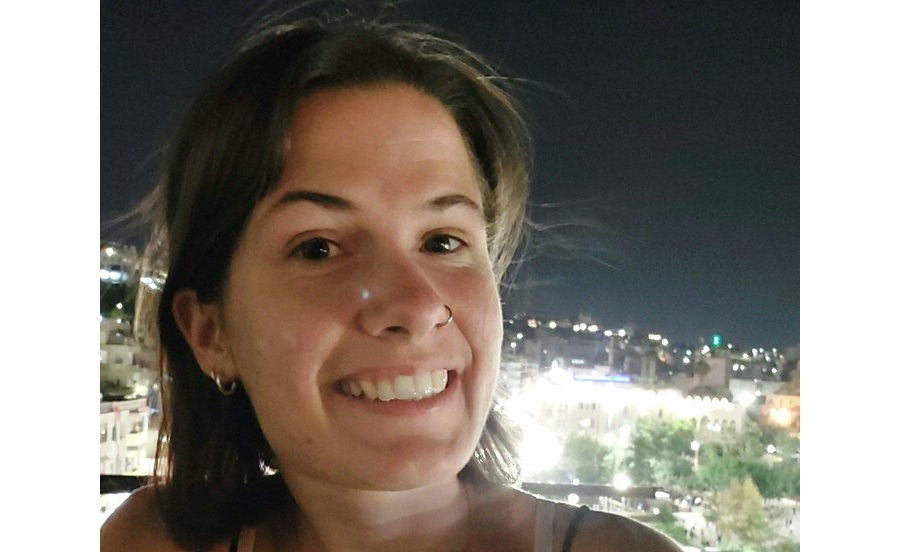
Marhaban! Mijn naam is Sara, ik ben 24 jaar en kom uit Brabant. Momenteel zit ik in het derde jaar van de bachelor Midden-Oostenstudies. Naast mijn studie werk ik ook zo nu en dan als student-assistent bij de verschillende vakken van onze opleiding.
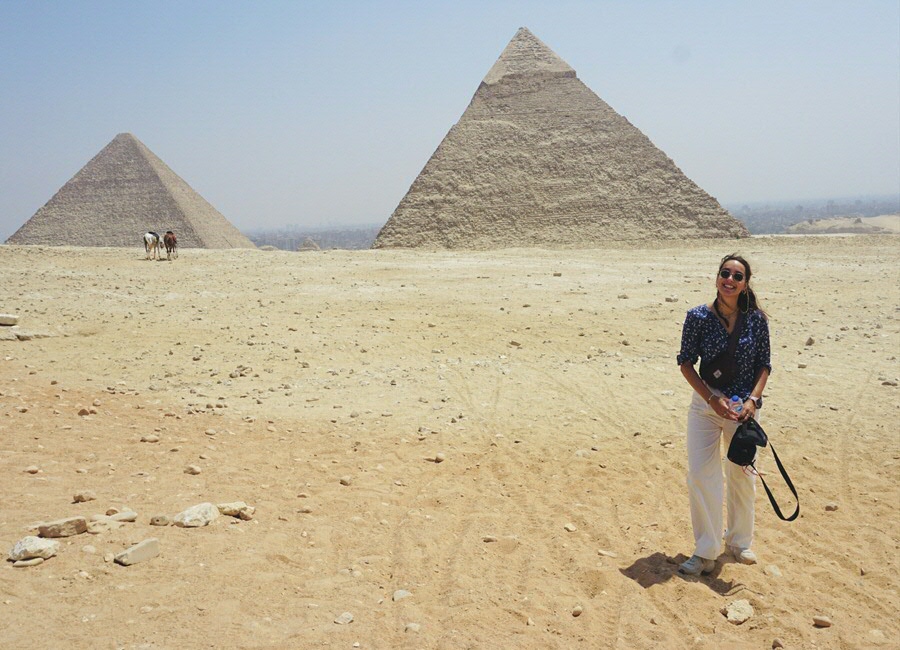
Bij het volgen van de bachelor Midden-Oostenstudies komen alle onderwerpen die te maken hebben met deze regio samen, van cultuur tot religie en politiek tot geschiedenis. Enerzijds oefent het Midden-Oosten een wereldwijde invloed uit, en anderzijds bemoeit de hele wereld zich met de ontwikkelingen binnen de regio. Bij de studie leer je hierop te reflecteren en ontwikkel je een kritische houding naar beeldvorming en stereotypen.
Het leren van een taal, Arabisch, vormt daarbij een goede
aanvulling binnen het programma.
Alle kennis uit de eerste paar jaar neem je mee tijdens het
buitenlandsemester. Dit is hét moment om het Midden-Oosten
echt te ervaren. Ik vertrok naar Caïro, waar ik veel nieuwe
inzichten heb gekregen en me bewuster ben geworden van waar mijn
interesses liggen. Daarnaast vormde dit semester de uitgelezen kans
om mijn Arabisch te verbeteren en toe te passen in het dagelijks
leven. Ik heb me op persoonlijk en professioneel niveau ontwikkeld
en zal mijn ervaringen dan ook altijd meenemen in de toekomst, wie
weet zal dit een toekomst zijn in het Midden-Oosten!
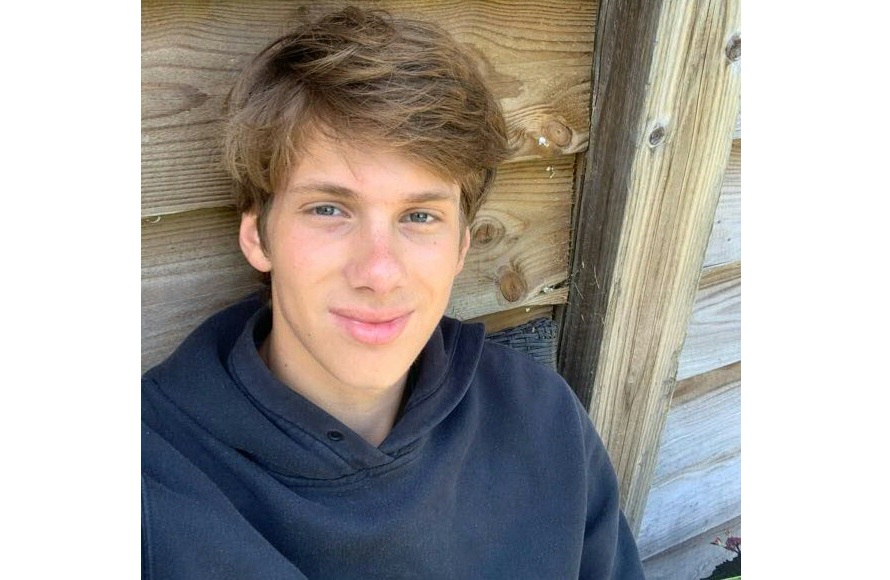
Ahlan! Mijn naam is Aron, ik ben 20 jaar oud en ben momenteel bezig met het afronden van de BA Midden-Oosten Studies.
Een bijzonder aspect aan deze opleiding is de combinatie van intensief taalonderwijs met vakken die onder meer de geschiedenis en politiek van de regio behandelen. Hoewel ik talen altijd al fascinerend heb gevonden, kwam dit in een stroomversnelling nadat ik dankzij de studie met Arabisch begon. Vanwege de combinatie met de historische bronnen uit andere vakken bestaat er een directe motivatie om de talen zo snel en zo goed mogelijk onder de knie te krijgen.
Binnen de opleiding Midden-Oosten Studies zijn er veel mogelijkheden om je eigen plekje te vinden, zowel op thematisch als geografisch vlak. Ondanks mijn initiële interesse in internationale politiek heb ik tijdens de studie langzamerhand een passie ontwikkeld voor historische ontwikkelingen rondom minderheden in de Maghreb-regio, waar ik uiteindelijk ook mijn scriptie over heb geschreven.
Zit je op het vwo en wil je graag weten hoe dat is, studeren? De opleiding Midden-Oosten Studies biedt een webklas aan! Een webklas is een door de RUG gemaakte cursus in Brightspace (een elektronische leeromgeving) voor scholieren uit 5 en 6 vwo. Je kunt in zo'n cursus in tien studielasturen kennismaken met Midden-Oosten Studies door teksten te lezen, opdrachten te maken en met elkaar en de docent te discussiëren.
Interesse? Meld je dan aan voor de webklas.